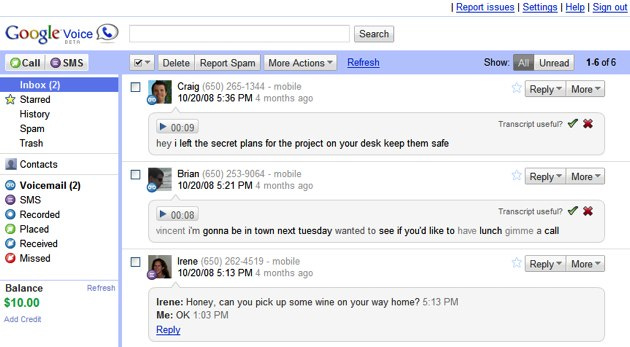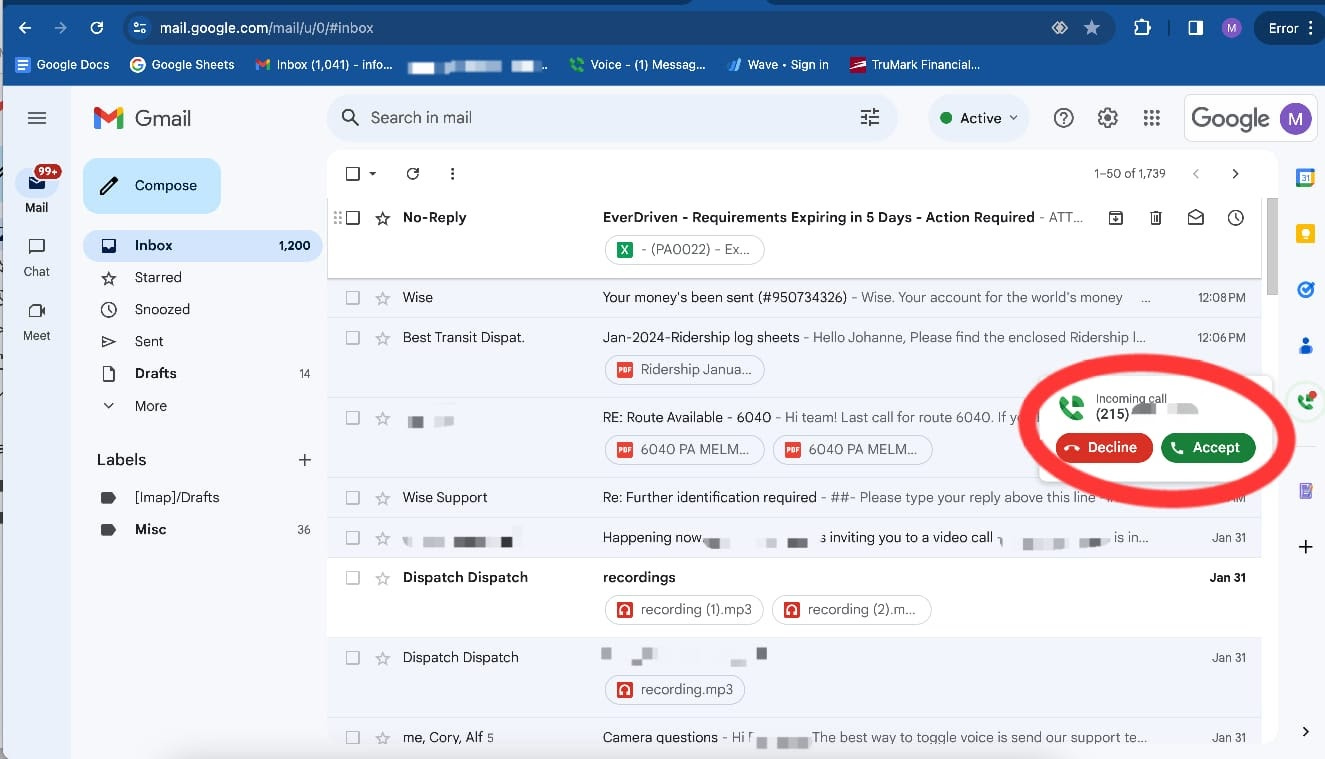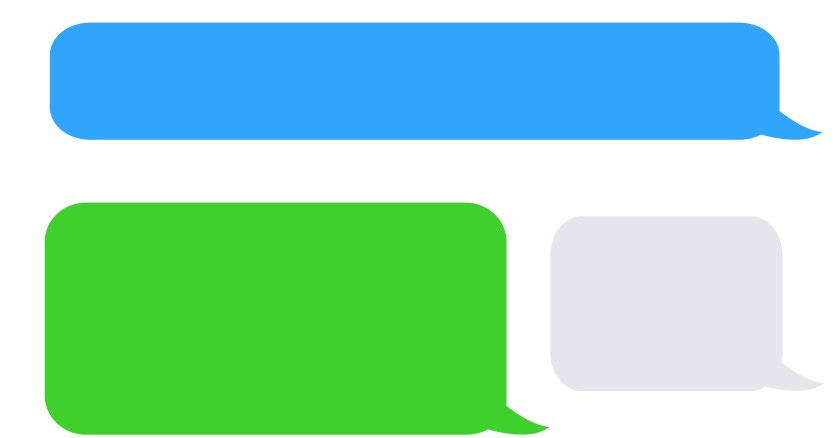If you've been reading my work for a while, you know that I've been somewhat of an Android phone devotee over the years. In the early days of the Android OS, I even worked on a show where I reviewed apps.
In those free-wheelin' early Android days, anything was possible. There was a new app being released weekly that was going to change your life. While we still see plenty of innovation in the app space, most people just keep using the same handful of trusty apps for years at a time.
And one of the most trusty apps for me was Google Voice. Is Google Voice one of those services that you've heard of but never truly wrapped your head around? Don't worry, you're not alone.
When Google Voice first launched back in 2009, it promised to be the future of communication. Ok, maybe I'm overstating that a bit but it still felt like a really big deal. You have to remember that at that time, text messaging was pretty strictly tied to phones. You had one phone number on your phone and that was the number you used for everything. Calls, text, slow data connections, it was all tied to your phone and your service provider.
Google Voice wasn't all that revolutionary in the technology that powered its backend. It was basically just a routing service called GrandCentral that gave you a number that could also allow forwarding of calls and texts to other numbers. So someone may call your Google Voice number and you could have it programmed to forward to a variety of other devices. This essentially let me have my old mobile number with a New York area code and now a new Google Voice number with a San Francisco area code that made me feel more like a local. I could be properly bicoastal when it came to my digital correspondences. It worked really well and I basically abandoned my old number and would use the new Google Voice digits for everything.
It even let you answer calls from right inside your Gmail inbox! That felt like the most convenient and futuristic thing ever. You could receive email versions of your text messages and reply to them via email but the recipient would receive it as a text! Is your mind blown yet?
This was heady stuff for 2009 when typical mobile phone services couldn't really compete. Did you want to set up your voicemail message so that it was customized for every person in your phone book? While a tedious exercise, I managed to set it up for dozens of my closest contacts. When my Mom called me, she'd get a voicemail greeting saying "hey mom!.....". It was a fun little party trick that most people were impressed by or confused by or both. I was even able to rig up a way for my apartment door buzzer to forward to any device so that I could remotely open my door or speak to delivery people while away from home. It was super convenient and helpful well before the advent of video doorbells that made this commonplace.
And for someone who used to test a ton of different devices, it made it super easy to keep your same phone number but receive calls on various phones and tablets for specific time periods. It also allowed me to stay in touch with people while traveling around the world without needing foreign sim cards in every country.
It all sounds amazing right? It was wonderful in 2009 and you can only imagine how much better it's gotten since then right?
No, like many other Google side projects, Google Voice has been mostly left for dead. It hasn't been fully killed off, but development has been limited. The Google Voice app for Android has received a few minor redesigns but it looks fairly outdated. Some of the more complicated features have broken over the years. Receiving calls in Gmail went away. Video calls and group texting (two things that have become the norm since 2009) never really worked properly. Basically, Google Voice was left behind in the last few years. And Google could quite literally pull the plug on it at any moment leaving people with a non-functional phone number. Not a good thing.
The proverbial straw to break Google Voice's back for me personally was RCS. We don't need to get too nerdy about it, but RCS is just a standard of messaging that is far superior to the SMS and MMS text messages that it replaced. The technology behind Google Voice is not equipped for RCS. So there can't be things like read receipts, typing indicators, reactions, high-quality file sharing, and seamless group texts.
The cons of using Google Voice for a bulk of my communications have started to outnumber the pros. The fun party tricks aren't keeping it afloat anymore. And with the latest RCS updates to iOS 18, if you're an Android user who wants to text nicely with iPhone users, Google Voice isn't going to cut it.
So this is a long way of saying that I have transitioned my main phone number away from Google Voice. I ported my number out of the service and ported it into a traditional mobile carrier. That process was actually way more complicated than it needed to be, but maybe that's a story for another day. And don't worry, in order to keep alive some of that Google Voice magic in case things improve, I'm porting out my old New York area mobile number and moving it into Google Voice.
Basically, I'm swapping numbers so that most of my texts and calls can benefit from the stability of a traditional wireless carrier. And having an old number moved into Google Voice allows me to still use it for specific scenarios while traveling or to experiment with other devices in the future.
Oh yeah, and one more thing. If you're an Android user on Google Voice or otherwise, there is still no escaping the green bubble if you’re texting with an iPhone user. While RCS will improve group messages and file sharing between the operating systems, Apple continues to designate Android users as green bubbles. In a world that is so divided, Apple couldn't just tear down that green wall and make us all the same color? Green bubbles, blue bubbles, plain-bellied sneetches, star-bellied sneetches. Can't we all just get along?
Thanks for reading, I’ll see you next week!
Hey! Could you use some help establishing healthy habits? Do you have a big project or new business that you want to get off the ground but could use some advice? Maybe you could benefit from hiring me as your coach. If you’re interested, read more about my coaching services here, or go ahead and book some time on my calendar to discuss further.
Iterate is free today. But if you enjoyed this post, you should let me know that this writing is valuable by pledging a future subscription. You won't be charged unless I enable payments at some point in the future. Think of it like an IOU in a tip jar.







I took have been using it since the beginning. I still use it as my main number because I like the flexibility of using it on the computer if I lose my phone or service for whatever reason. I also don't need other people knowing my business and really dislike read receipts. I recently found out android does them and turned them off despite rarely using my actual carrier number, I just route GV through the phone as my main number. Honestly, the worst thing about this is the annoying group texts with iphone users constantly likeing a text and it comes through as a new message with a new notification. I actually don't even understand why people like this and I wish it would just go away, but it won't so I'll stay in dinosaur land as long as possible. But this article is making me think I should switch numbers as well since I've been out of New York so long and don't really care if any of those people can contact me anymore. Actually I've blocked most of them. A feature I really have loved about GV over the years, but I think regular Android has now caught up to that? If GV were to go away, I'd have to reach out to all my local people and give them my actual number, but then I'd still need a secondary number for promotional contacts. Hmm...something to think about.
Obviously I could be wrong, but I think the main reason why Google voice doesn't have rcs support comes down to the purpose of rcs in the first place. It's an encryption protocol meant to ensure only the receiver seen the message sent right? Meanwhile, my Google voice is signed into 4-5 different devices. Obviously there's a chance that someone else may see the message on one or more of my devices. But even without that, there's no way to securely proclaim with any certainty that only one of my apps read the message. And finding a way to send it only to one specific device with google voice is oxymoronic to what the point of Google voice is in the first place.
While it's true that Google could certainly have some "form" of rcs available on their app, it would be substantially different than what they'd find acceptable from any normal android powered device. And allowing something to call itself rcs despite being so radically different from their acceptable standards would threaten the idea of security within the entire protocol, if for no other reason precedence... And would ultimately cost a significant amount.. probably more than the entire Google voice project has made in its entire lifetime.